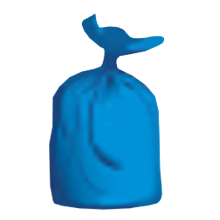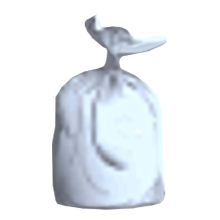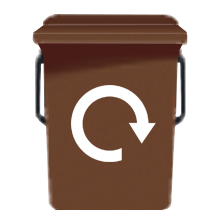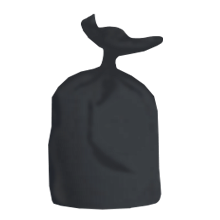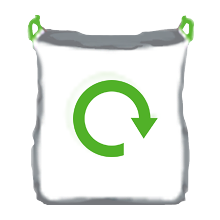Whilst on the ward you and your baby will be cared for by a midwife who will support you with feeding and caring including how to bath your baby.
Whilst on Loveridge ward your baby will have a newborn examination within 72hrs of birth usually completed by a midwife trained in completing them or a local GP. The newborn hearing screen test will be performed by a Maternity Support Worker either on the ward or at home.
On day 5 your baby will be weighed and offered a heel prick blood test to check for congenital disorders.
Recovery after a caesarean section
Generally you can go home within a couple of days as long as you are well. It is advised that you take it easy for the first two weeks looking after yourself and your baby. You shouldn't do any strenuous activities or drive for at least 6 weeks.
On discharge home we ensure that you have information about your postnatal care, registering the birth, screening tests for baby and contact details for the Community Midwives as well as when the Community Midwife will visit.
Postnatal care for you
The first few days after having your baby you will feel very tired and it is important that you get as much rest as you can.
Adapting to motherhood can be a slow process but well worth it.
Stitches
- If you have had stitches make sure you keep them clean and regularly change your sanitary pad. You can shower or have a bath but use just plain warm water, making sure that you dry yourself carefully.
- If you feel the stitches are sore or uncomfortable then speak to your midwife who can have a look for you. Simple painkillers like paracetamol and ibuprofen can be used for pain relief, make sure you talk to your Midwife or GP before starting any medications.
- Your stitches should dissolve around 7 to 10 days and you should have no further problems.
- It is important that you undertake your pelvic floor exercises which will help with promoting blood flow to the damaged area and help to strengthen the muscles.
Going to the toilet
- It can be a sore and a little frightening passing urine after having stitches, you need to keep yourself hydrated diluting your urine and reducing the chances of stinging.
- You may not open your bowels for a few days following delivery, it is important to eat drink plenty of water, eat fruit and vegetables which will ensure you don't become constipated.
- It is very unlikely that you will break your stitches whilst going to the toilet.
Bleeding
- It is normal to bleed from your vagina after having your baby. Initially, it will be quite heavy at first, like a heavy period. Make sure you use maternity pads or super absorbent sanitary towels. It is not advisable to use tampons until after your postnatal check as these can cause infections.
- When you are breast feeding you may notice that your blood loss may be heavier and you may feel cramping, known as "after pains" due to the uterus contracting.
- Gradually, the blood loss will reduce, becoming brownish colour and may continue for some weeks becoming less and less until it stops.
Feelings
- 8 out of 10 new mums may feel low or keep bursting into tears for no apparent reason around day 3 or 4 after the birth. This is the 'baby blues' and due to the changes in your hormones.
Postnatal depression (PND)
- Around 1 in 4 mums and 1 in 10 men are affected by mental health problems during pregnancy and the two years after birth. Postnatal depression is a depressive illness which affects between 10 to 15% of women having a baby.
- In the first few weeks after the birth of a baby, feelings related to postnatal depression, can often be mistaken for the 'baby blues', which is a short period of feeling low, anxious and irritable and affects 80% of new mums. PND is when these feelings last for much longer, can vary from mild to severe and it can affect women in different ways.
- You may have feelings of:
- Low mood, sadness
- Anxiety
- Feelings of worthlessness
- Tearfulness
- Lack of energy
- Self-blame or guilt
- Irritability or emotional highs and lows
- Lack of interest in activities
- Increased or decreased appetite
- Reduced concentration and decision making
- Sleep disturbance
- Slowed or fast speech
- Feeling of hopelessness
- Obsessional or intrusive thoughts
- Thoughts about death and suicide
- If you or your family think you might be suffering from antenatal or postnatal depression or anxiety, it's important to get help as soon as possible. You can talk to your midwife or health visitor and explain how you're feeling. They will be able to assess and advise you.
- Beyond Blue offer support for the emotional wellbeing of Mums who may be experiencing anxiety or low mood through pregnancy and up to 2 years post birth. The support group "Blossoming Through" is a safe space where you can meet other Mums and receive non-judgemental support.
- Beyond Blue Buddies offers 1-1 support in the community or at Bright Beginnings Children's Centre. If you feel you would prefer to speak to, please contact Beyond Blue:
- Tel: 01481 249919
- Email: info@brightbeginnings.gg
- Other options include:
- Self help e.g. exercise, talking to family and friends about how you are feeling, making time to do things you enjoy.
- A course of therapy e.g. Cognitive Behavioural Therapy (CBT) or Eye Movement Desensitization and Reprocessing (EMDR).
- Anti depressants, there are many that can be taken if you are breastfeeding.
- Useful contacts:
Postnatal care for your baby
Cord care
- Your baby's cord will have a plastic clip attached. The cord will gradually dry out and drop off after about a week. If you notice it bleeding or any smell then speak to your midwife.
Skin care
- When your baby is delivered it may be covered in a white sticky substance, vernix. This is nature's moisturiser and should be left to be absorbed naturally giving added protection against infection in the first few days.
- If your baby is overdue, their skin may be dry and appear cracked as the protective vernix has been absorbed. You don't need to use any creams or lotions as the top layer of your baby's skin will peel off over the next few days, leaving perfect skin underneath.
Jaundice
- When your baby is about three days old, they can develop mild jaundice. This will make their skin and the whites of their eyes appear a bit yellow. As long as your baby is getting enough milk and having plenty of wet and dirty nappies this usually disappears in the first week without any further intervention.
- If your baby appears sleepy and difficult to wake for a feed your midwife may request to use a monitor or take a blood test to calculate the level of jaundice, as at high levels is can be of concern and need phototherapy.
Safe Sleeping
- During the early weeks some babies feed, sleep and don't do much else, others will spend periods wide awake. As your baby gets older they will develop a pattern of waking and sleeping.
- We know that placing baby to sleep on their back reduces the risk of problems. Reducing exposure to cigarette smoke and making sure that baby is not too hot will also help. Co-sleeping with your baby is associated with a higher risk of sudden infant death.
- We advise you not to share your bed with your baby especially if you have been smoking, drinking or taking drugs including prescription medication.
- The safest place for your baby to sleep for the first six months is on their back in a moses basket or cot in your room.
- If you bring your baby into bed to feed, when finished return your baby back to their cot to sleep.
- Here is a great video on safe sleeping: https://youtu.be/NO2vbtjNk2c
Postnatal baby checks
When your baby is born they will initially be checked by a midwife to make sure there are no obvious concerns, have all their fingers and toes, weigh the baby and take the temperature.

Newborn and Infant Physical Examination (NIPE)
- Within 72 hours a more detailed examination will be carried out, usually, by a midwife qualified to perform them. This is to identify and refer for congenital abnormalities to the heart, hips, eyes and testes in males.
Newborn hearing screening programme
- A small number of babies are born with hearing loss which may affect the development of the child's language and social skills. You will be offered a simple test to check your baby's hearing.
Newborn blood spot screening (heel prick test)
- Every baby is offered newborn blood screening, known as the heel prick test when they are 5 days old. Your midwife will ask to take a sample of blood from their heel. This is used to test for rare but potentially serious illnesses. All babies are tested for phenylketonuria (a metabolic disorder), cystic fibrosis, congenital hypothyroidism (low thyroid hormone), MCADD, an inherited problem with the metabolism and sickle cell disease (inherited conditions affecting red blood cells) as well as a number of other inherited metabolic conditions.
Choices for Postnatal Contraception
Contraception may not be an immediate consideration following the birth of your baby or babies. However, it is important to note that pregnancy can occur from as early as 21 days post-delivery.
At Choices we provide a confidential service to support sexual wellbeing by empowering individuals to make positive and informed choices about their contraceptive and sexual health.
As a charitable organisation our aim is to offer affordable contraception and sexual health services. Please do not let cost deter you from seeking a contraceptive method that is right for you, we offer interest free payment plans to suit your needs.
Our team of highly specialised Doctors and nurses provide a comprehensive range of contraceptive options.
Please follow the link below to obtain further information on contraception after childbirth:
FPA-Contraceptive-Choices-1017.pdf
Discharge from Community midwife
If all is well you may be discharged from midwifery care at around day 10 but they can be contacted for support up to 28 days after your baby's birth. Once your Community Midwife is happy that you and your baby are progressing well, she will hand over care to your Health Visitor.
Your Health Visitor usually contacts you before day 10 and is there to offer support and guidance through your baby's childhood and beyond. They will advise you on matters such as immunisations and child development. You can also register your baby with your GP and access them if you have any health concern with your baby.
